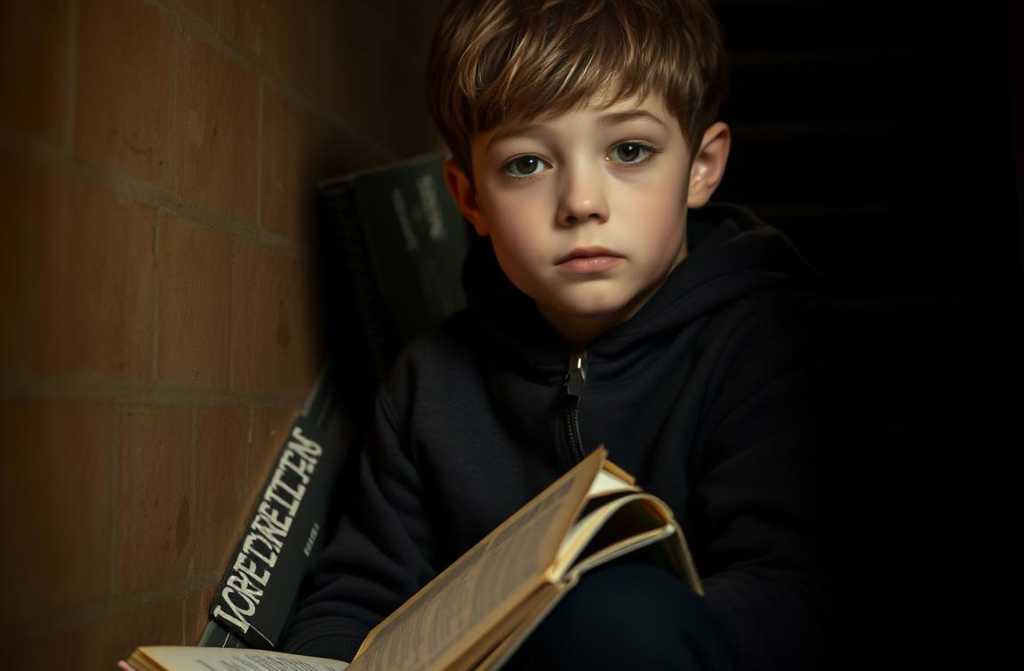Sometimes I would look around my office and think, “I built this myself.” Yet somewhere deep inside, that boy still satthe one waiting to be called home.
They turned me out at fifteen. No suitcases, no shouting, not like in the films. Just one evening, my mother looked at me as if I were a stranger and said, “Johnny, it’s for the best. This isnt your place anymore.”
I stood in our cramped kitchen, the air thick with the smell of stew and something sour. The floor might as well have vanished beneath me. I stared at her handsthin, nails bitten downfidgeting with the hem of her apron. She didnt cry. Only her eyes were empty, like a switched-off telly.
Before that, Id been just another lad. We lived in a two-bed flat on the outskirts, where the wallpaper peeled and the stairwell always reeked of cat piss. I brought home top marks from school, fixed the sockets when she asked, washed the dishes.
I hoped, just once, to hear, “Well done, Johnny.” But that was before George came. Mums new husband barged into our lives like a bulldozer.
When Annie was borntheir proper childI became a shadow. She was their *real* daughter: pink booties, smiles, photos on the fridge. Me? I was spare.
Evenings, Id slip out to the stairwell, sit on the cold steps, and listen to the lift hum. There, at least, I could breathe. Indoors, the air pressed in like a coiled spring, ready to snap. I knew it would.
And it did.
“Wheres the money from my wallet?” George loomed in the doorway, clutching his worn-out billfold like evidence. Two hundred quida pittance, but to him, a fortune.
I swore I hadnt taken it. He narrowed his eyes. “Dont lie.” Mum stayed quiet. Then, soft as a whisper: “John, just admit it. We dont want the police involved.” I looked at her and didnt recognise her. Where was the woman whod stroked my hair when I was poorly?
I said nothing. Packed a rucksack with a couple of shirts, my notebooks, an old MP3 player with a cracked screen. Walked out. The door shut behind me like a gunshot.
The childrens home greeted me with iron bed frames, bleach-scrubbed floors, and concrete walls that held no warmth. No one pretended to be family here.
The older boys tested my mettleshoves in the corridor, stolen trainers. Once, they left a dead rat in my bed. I didnt scream. Didnt complain. Just tossed it in the bin and learned: here, only the quick and clever survive. I became both.
I kept my mouth shut, learned to spot liars, to guess whod betray you. But inside, it still ached, like someone had left the pain switched on.
The home had a computer room ancient PCs that whirred like tractors and crashed constantly. First time I saw codelines where every word *meant* somethingit felt like poetry, only better. It *worked*.
I stayed there nights until the carers chased me to bed. Mr. Harris, the IT teacherbalding, always reeking of coffee, eyes heavy with exhaustionnoticed. Once, he tossed me a battered C++ manual. “Here. Might get you out of this place.”
I read it. Wrote my first programs: a calculator, then a simple game where a square dodged obstacles. Every time the code ran clean, something warm flickered in my chest. Like someone had finally said, *You can do this.*
At the home, I made one friend: Tim, a scrawny lad with a mop of messy hair. He laughed at everything, even himself. Once, he nicked a roll from the canteen and split it with me. We sat on a windowsill, chewing, dreaming aloudhim of a guitar, me of a normal life. He didnt make it to graduation. Fell in with the wrong crowd, then jail. But I never forgot that roll. It felt like proof I wasnt alone.
I left school with top marks. Not for praisejust to prove I wasnt rubbish to be tossed out. Got into a polytechnic in Manchester. The halls smelled of fried food, cheap aftershave, and unwashed socks. I lived on grants and odd jobs: stacking shelves, mopping café floors. Nights, I coded websites for pennies.
My first proper pay£200 for an auto shops sitebought me new trainers and a takeaway. First time in years I smiled so wide it hurt. *My* money.
At uni, I found mates. Dave, an anime nut, lugged his laptop everywhere, showing me animations. Lizzie, a redhead with a booming laugh, taught me to fry eggs without burning them. They were the first to see me as more than a shadow. Still, I kept my distance. Afraid if I let them too close, theyd vanish too.
By thirty, I had my own firm. Small, but mine. An office in the city, glass doors, a coffee machine that buzzed like those old home computers. A team of ten who believed in me. I believed in them.
We built sites, apps, even launched a start-upan online course platform. Sometimes Id sit in my office, thinking, *I made this.* But inside, that boy still waited on the stairs, hoping to be called home.
Once, a journalistmanicured nails, eager notepadasked, “John, howd you get here?”
I told her everything. Mum choosing George. George seeing me as a threat. The home where I learned to survive. The nights hunched over code. The headline ran: *”From Care Leaver to CEO.”* I read it and thought, *Care leaver? Suppose so.*
A week later, an envelope appeared at work. Plain, creased. *”John. From Mum.”* Inside, a few lines:
*”Im proud of you. Im sorry. George is ill. Annies out of work. Were struggling. Id like to talk. See you. Not for money. Just your mum.”*
I stared at the paper. My chest felt hollow. No anger, no hurt. Just cold, like a light switched off inside. I sat there, twirling a pen, watching the city through the glass.
Why now? What changed? But something made me go. Maybe to end it. Maybe to hear why.
The flat was the same. Same damp smell, same dim hall light. Mum answered in a worn dressing gown, eyes red. Shed agedhair grey, face lined, hands trembling. George was in the bathroom, hooked to an oxygen tank. His rasping breath filled the flat like bad music.
Annie sat stiff on the sofa, clutching a tablet like a lifeline. She glanced up, guilt in her eyes. Or maybe I imagined it.
We sat at the table. Mum talked fastGeorges six-month prognosis, Annies debts, the pills they couldnt afford. She twisted the tablecloth like she had that day years ago. I studied the faded patterns, remembering her teaching me to flip pancakes when I was seven. Where was that woman?
Then she went quiet. Looked at me.
“John, we were wrong. *I* was wrong. I thought George meant security. Thought Annie was a fresh start. You… you were a reminder of my mistakes. Im sorry.”
Annie spoke then, voice cracking. “I tried to stick up for you. But I was just a kid. I couldnt”
George turned to the wall, coughing into his mask. Something inside me cracked. Not pain, not rage. Something else. Like standing on a ledge, free to step back. But I said:
“I dont hold grudges. But youre not my family. Youre my past. I came to say goodbye.”
Mum cried. Annie looked down. George stayed silent. I left.
The lift descended slowly, like in a dream. For the first time in years, I breathed easy. Not hurting. Justdone.
Now, Ive my own life. I dont waste it on those who cast me out. Sometimes I donate to childrens homes. Not for karma. Once, I visited one with laptops for their IT program. A ladfourteen, skinny, stubborn-eyedwas hammering at a keyboard like I used to. That same fire in his gaze.
I gave him my old coding bookthe one from Mr. Harris. He looked at me like Id handed him a ticket to another life.
Another letter came recently. Mum again. Wants to meet grandchildren. But Ive none. Might never. I didnt reply.
Forgiveness isnt reopening the door. Its shutting it for good. And walking away lighter, like dropping an old rucksack.







